A majority of voters oppose LB 753 and want to repeal the bill passed by the Nebraska Legislature this year that creates state tax credits for donations made to organizations granting private school scholarships.
After LB 753 was passed, Lake Research Partners led a public opinion survey in partnership with OpenSky Policy Institute. The survey conducted May 31-June 5 included 600 voters closely matching the likely 2024 electorate in Nebraska. The margin of error is +/- 4%.
When asked about the bill, 55% of those voters surveyed expressed opposition to LB 753, with 42% voicing support for the bill. Alone, those voters strongly opposed to LB 753 (43%) topped the percentage of all supporters.
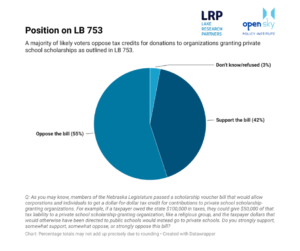
LB 753 is the subject of a referendum petition signature-gathering campaign organized by Support our Schools Nebraska, a coalition including OpenSky Policy Institute. The group’s goal is to secure 90,000 signatures in 90 days to put LB 753 before voters next year.
When voters were asked how they would weigh in on the November 2024 ballot, a majority of those surveyed (55%) said they would vote to repeal the bill. Again, those strongly backing repeal (47%) outpaced those who expressed any level of support to retain the legislation (37%).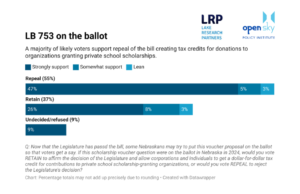
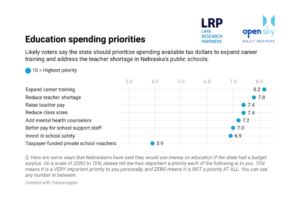
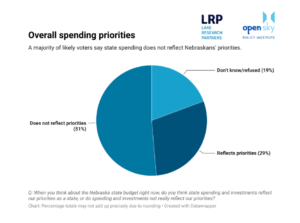
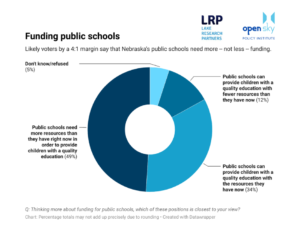
This analysis is based on a survey conducted by Lake Research Partners on behalf of OpenSky Policy Institute. The survey was conducted May 31-June 5, 2023, among 600 likely 2024 voters in Nebraska. The interviews were completed by interviewers over the phone and online via a link shared by text message. The data were weighted slightly by gender, region, age, race, party registration, children, education and voting history. The sampling error is +/- 4%.

